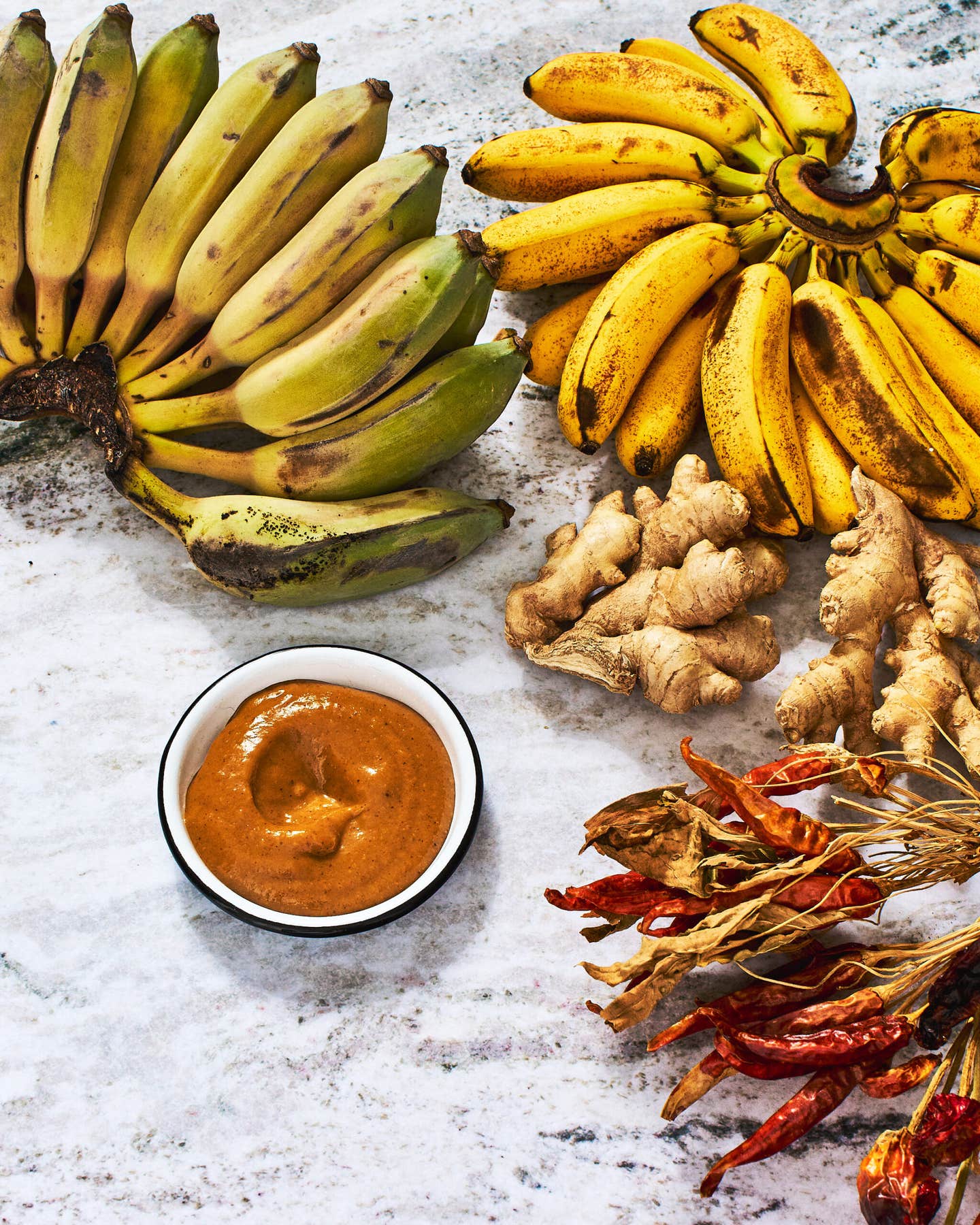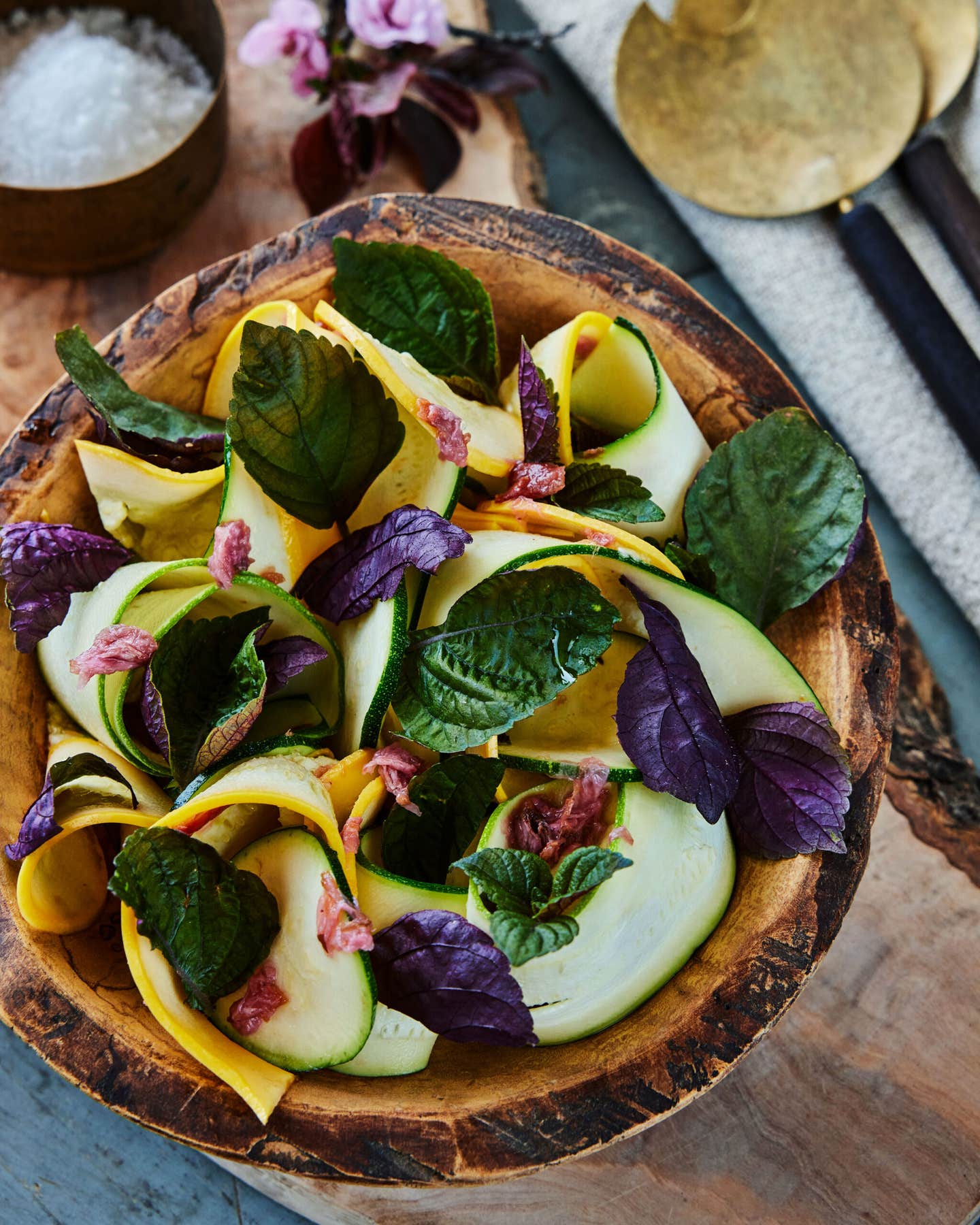
Jamaica’s National Dish Is an Immigrant to Its Own Shores
Bee Quammie reconsiders the ocean-spanning journey of ackee and saltfish, and what its improbable invention reveals about the Jamaican soul
I never took to Dad’s cow foot soup growing up, but even at a young age I’d lick a plate of ackee and saltfish clean. Known widely as Jamaica’s national dish, the meal of starchy mashed fruit with cured fish became a favorite of mine during a childhood trip to Jamaica. My parents migrated from the island to Canada in the 1980s, and in their adopted home, they mixed up traditional Caribbean cooking with the novelty of North American food. Especially Dad, who famously made cow foot soup for my 10th birthday party because he couldn’t understand how children survived on hot dogs and pizza. Other kids who grew up between two cultures might know what this difficulty is like: My parents would roll their eyes when I asked for Kraft Dinner, and my friends would wrinkle their noses and ask “What is that?” when I brought curry chicken for lunch. But ackee and saltfish. Served atop a bed of boiled dumplin’ and green bananas, or with a thick slice of buttered hardo bread, bacon, tomato, and pear (what Jamaicans call avocado), I’ll take it almost any way it comes. A certain kind of bliss is rolling the softer-than-scrambled-eggs ackee around my mouth and rewarding myself with hidden morsels of peppers and salt-packed cod. Back in our small city in southwestern Ontario, ackee was elusive and saltfish (i.e. salt cod) was expensive, so the dish became an occasional treat until later in life, when I moved to the multicultural metropolis of Toronto. Moving to Toronto not only meant that I was able to satisfy my ackee and saltfish craving any time I wanted, but it also broadened my social circle. In my hometown, even the simplest conversations around race or culture from a non-white perspective were met with raised eyebrows and hyperbolic determinations of your political leanings, but Toronto was different. I met people, attended events, and had access to resources that allowed me to explore more of my identity without restriction—and it was during some of my own personal research that I stumbled upon the curious origins of ackee and saltfish, enabling me to see my favorite dish in a new light. What do our favorite dishes tell us about ourselves? One of the most puzzling things about the Jamaican staple of ackee and saltfish is that neither of its main ingredients are native to Jamaica. The ocean-spanning, generational story of how they got there tells an essential tale about the people they fed. Oral history reigns supreme throughout the Caribbean, but sources like the University of the West Indies and national information sites offer some more concrete details. With the horrors of the Transatlantic Slave Trade setting the scene, the story of ackee begins in Ghana. Records suggest that ackee officially arrived in Jamaica from Ghana, most likely via slave ship in 1778. As Kerry-Ann Morris, the writer of Jamaican Echoes shares, the yellow-skinned fruit was purchased from the slave ship’s captain in order to provide a nutritional source for Jamaica’s enslaved population, and became a staple food.

One of the things I love most about my Jamaican heritage is speaking, hearing, and reading Patois. What I didn’t know in my childhood is that many of the Patois words I grew up with originated from various West African languages, a cultural transfer courtesy of the slave trade that mirrors the migration of our now essential foods. “Ackee” is one of those words, derived from the its original Twi name of “ankye.” Though the aftereffects of colonialism have placed Patois at the center of arguments of respectability for decades, it tickles me to learn that any attempt by even the most well-heeled and “proper” Jamaicans to distance themselves from their ancestral histories would be moot if they ever discussed their delicious food. Similar to the initial interest in ackee, scraps of cod were traded to plantation owners in the Caribbean who sought a cheap protein source for their enslaved workers. The prime cuts of cod were sold to European countries from Canadian provinces like Newfoundland & Labrador and Nova Scotia, but a significant part of these Atlantic provinces’ economies were stabilized through the support of the slave trade. Saltfish became the go-to protein for enslaved people in Jamaica and across the Caribbean, and a long-standing trade partnership between the Atlantic and the Caribbean regions was solidified. The mystery that remains is how ackee and saltfish were eventually paired together. I imagine that first kitchen mastermind had no idea that the dish would become as impactful a Jamaican phenomenon as bauxite and Bob Marley. Sitting here in Toronto, much of this history is difficult to swallow. There’s this Canadian narrative of a country as multicultural utopia, built on a foundation of justice, equality, and partnership. Call it Canadian exceptionalism: Where Americans skew conservative, us Canadians are progressive. When America enslaved its Black population, we only maintain that Canada offered a refuge of freedom. Many Canadians get defensive about anything that sullies this fairytale. Yet while Newfoundland and Nova Scotia likely hadn’t joined the Confederation while contributing to the slave trade, and Canada’s role in the trade was relatively minor compared to elsewhere in the Americas, Canadians need to come to terms with the fact that our foundation isn’t as pristine as we tell ourselves it is. There’s a particular dissonance for me as a Black Jamaican-Canadian, with the discomfort of knowing that the country of my birth was an active participant in the subjugation of my ancestors, but one thing I do not feel is shame. I feel resilient. There’s a Jamaican expression my grandmother often said: Every mickle mek a muckle, meaning little things add up to grand things. From ackee seeds surviving the arduous journey from Ghana to the Caribbean, to enslaved Jamaicans saving up scraps of cod preserved in Nova Scotia, the story of Jamaica’s national dish speaks to the resilience of my ancestors that resonates through the generations. Even under painful circumstances, there’s beauty in creating something new with pieces that don’t seem to fit together.
Keep Reading
Continue to Next Story










